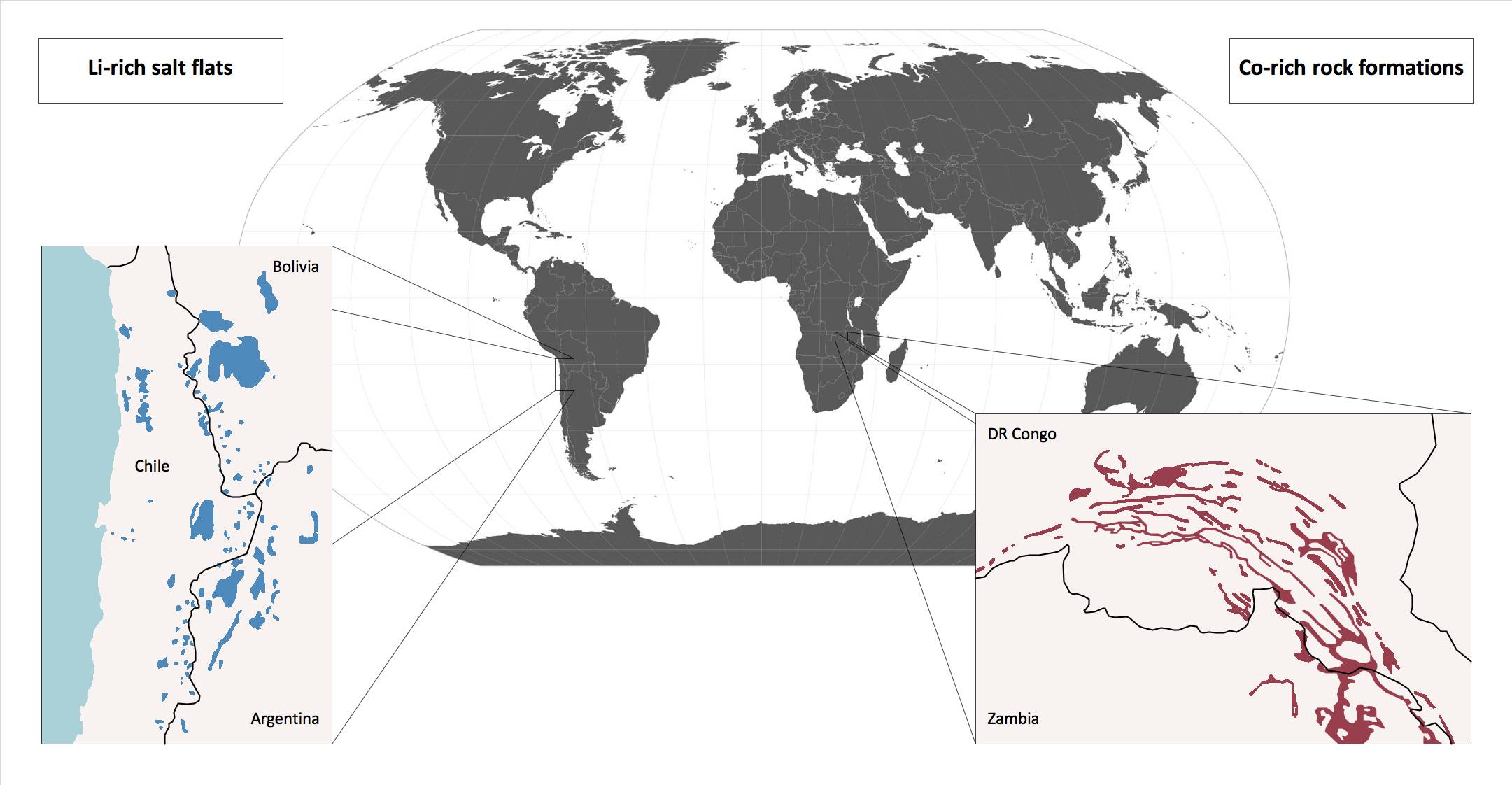The metal market may have some critical issues. An analysis by the Helmoltz Ulm Institute of the German University Karlshure Institute of Technology shows how the availability of cobalt and lithium is destined to become critical in the 2050 scenario for applications in the field of energy storage.
We know very well that lithium and cobalt are key elements for batteries, so researchers suggest increasing efforts in research on alternative technologies.
The indications lead to sodium, magnesium and aluminum.
In the extended metal market report published in Nature, by Christopher Vaalma, Daniel Bucholz, Marcel Weil and Stefano Passerini, the scenario is depicted until 2050 for various battery applications.
It is shown that the shortage and price increase of cobalt may occur, as its request could duplicate with respect to the current identified reserves.
On the contrary, current lithium reserves will need to increase production up to ten times the current volume to cope with future demand.
Both elements are also affected by a strong geographical concentration, also in the countries declared less politically stable.

According to the researchers, this would give rise to serious concerns about a possible shortage and the resulting rise in the prices of BIS in the near future. “It is therefore essential to expand research into alternative battery technologies in order to reduce these risks and reduce pressure on cobalt and lithium reserves,” says Daniel Buchholz. Stefano Passerini, Deputy Director HIU, underlines: “Post-lithium systems are particularly attractive for electromobility and stationary applications, which is why it is both very important and urgent to unlock their potential and develop these innovative high-energy batteries towards the maturity of the market “.
The importance of new battery technologies based on low cost, abundant and, at best, non-toxic elements is highlighted, demonstrating the importance of their further development in order to reduce the pressure on critical resources and wipe the metal market criticity.
To meet this need, KIT and University of Ulm have joined their efforts in the proposal for a Cluster of Excellence Energy Storage Beyond Lithium: new storage concepts for a sustainable future, focusing on the development of sodium, magnesium and other batteries based on abundant materials. The Center for Solar Energy and Hydrogen Research Baden-Württemberg (ZSW) and the Justus-Liebig University in Gießen are also involved in these efforts.



